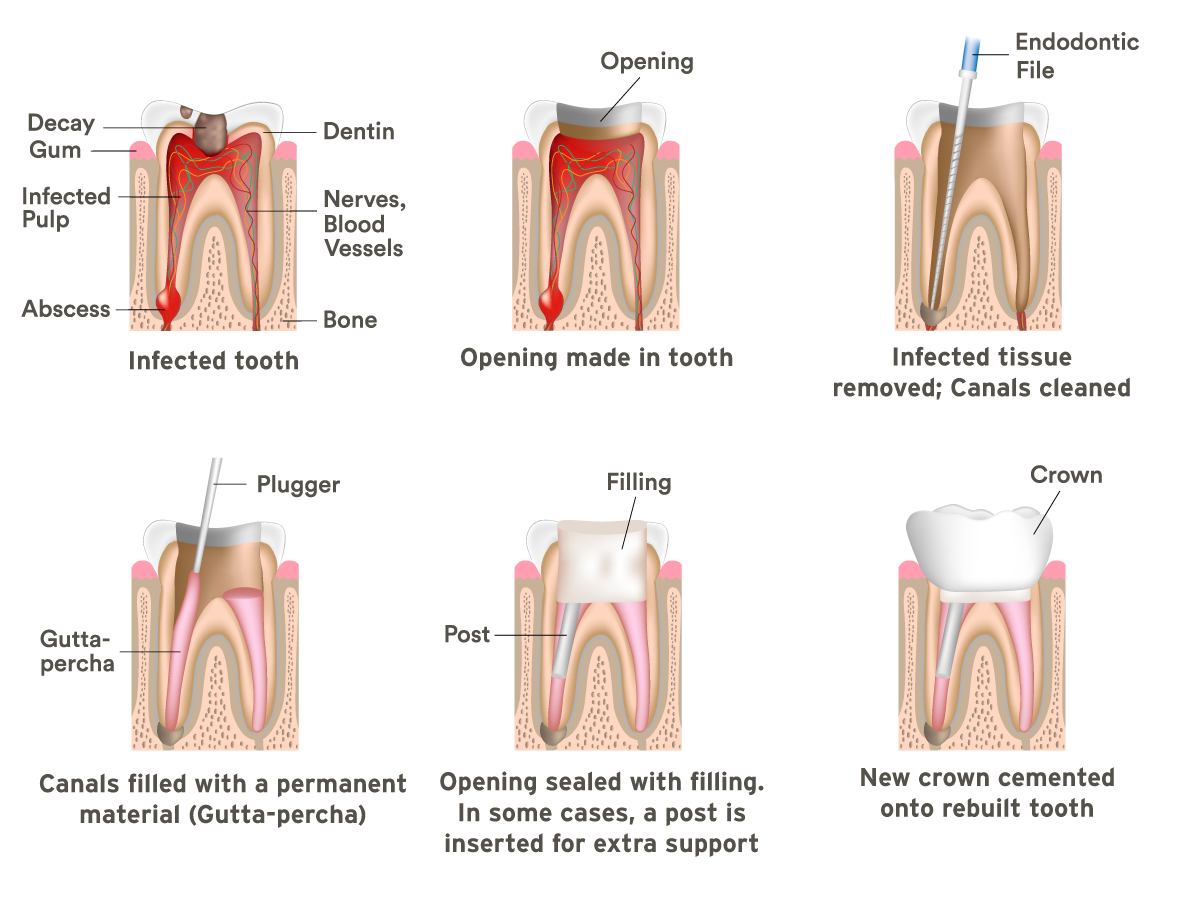Gentle & Effective Tooth Preservation: Root Canal Therapy at Young Dental Care

Experiencing persistent tooth pain, sensitivity, or swelling? These could be signs of an infection deep within your tooth. At Young Dental Care in Everett, Dr. Young Park provides skilled and gentle root canal therapy (also known as endodontic treatment) to relieve your pain, eliminate infection, and, most importantly, save your natural tooth.
We understand that root canals sometimes carry a daunting reputation, but our compassionate team for patients from Everett, Mukilteo, Lynnwood, Bothell, and the wider North Lynnwood, Washington area is dedicated to making your experience comfortable, efficient, and virtually pain-free.
Root canal therapy is a procedure to remove the infected or inflamed pulp, clean and disinfect the inside of the tooth, and then fill and seal the space. This process saves the natural tooth from extraction, preserving your smile and bite function.
We understand that root canals sometimes carry a daunting reputation, but our compassionate team for patients from Everett, Mukilteo, Lynnwood, Bothell, and the wider North Lynnwood, Washington area is dedicated to making your experience comfortable, efficient, and virtually pain-free.
What is a Root Canal and Why is it Needed?
Inside every tooth, beneath the hard enamel and dentin, lies a soft tissue called the pulp. The pulp contains nerves, blood vessels, and connective tissue, and it extends from the crown of the tooth down to the tip of the roots. When the pulp becomes infected or inflamed due to deep decay, repeated dental procedures, a crack or chip in the tooth, or trauma, it can cause significant pain and lead to an abscess if left untreated.Root canal therapy is a procedure to remove the infected or inflamed pulp, clean and disinfect the inside of the tooth, and then fill and seal the space. This process saves the natural tooth from extraction, preserving your smile and bite function.
Benefits of Choosing Root Canal Therapy at Young Dental Care
Opting for a root canal at our Everett dental office offers several significant advantages:- Pain Relief: The primary benefit is alleviating the severe pain and discomfort caused by an infected tooth.
- Saves Your Natural Tooth: A root canal allows you to keep your tooth, avoiding the need for an extraction and subsequent replacement options like a dental implant or bridge.
- Maintains Oral Function: Keeping your natural tooth preserves your biting and chewing capabilities.
- Prevents Spread of Infection: Eliminates the infection from within the tooth, preventing it from spreading to other teeth, gums, or even into the bloodstream.
- Natural Appearance: After a root canal, the tooth is typically restored with a dental crown, which blends seamlessly with your natural smile.
- Cost-Effective in the Long Run: Saving your natural tooth can often be more cost-effective over time than extracting it and replacing it with an artificial one.
Recovery After a Root Canal
Following root canal therapy, it's normal to experience some mild sensitivity or discomfort for a few days, especially after the anesthetic wears off. This can usually be managed with over-the-counter pain relievers. We'll provide specific aftercare instructions to ensure a smooth recovery. With proper care and regular check-ups, your restored tooth can last a lifetime.FAQs
What exactly is a root canal, and why would I need one?
A root canal (or endodontic treatment) is a procedure to remove infected or inflamed tissue (pulp) from inside your tooth, clean and disinfect the inner chamber, and then seal it. You would typically need one if deep decay, a crack, or trauma has caused the tooth's pulp to become infected or inflamed, leading to severe pain, sensitivity, or an abscess. It's done to save your natural tooth.
Are root canals painful? I've heard they are.
This is a common misconception! Modern root canal therapy is performed under local anesthesia, meaning you will not feel any pain during the procedure itself. The goal of the root canal is actually to relieve the severe pain caused by the infection. With advanced techniques and our focus on patient comfort at Young Dental Care, the experience is often no more uncomfortable than a standard filling.
How long does a root canal take, and what happens after the procedure?
A root canal can often be completed in one or two appointments, depending on the complexity of the case. After the root canal, the tooth is sealed with a temporary or permanent filling. In most cases, the tooth will need to be restored with a dental crown to protect it from fracture and restore its full strength and function, as the tooth can become brittle after the pulp is removed.
Can I avoid a root canal, or what happens if I don't get one?
An infected tooth will not heal on its own. If you delay or avoid a root canal, the infection can spread, leading to a severe abscess, damage to surrounding bone, and potentially affecting your overall health. Ultimately, the tooth would likely need to be extracted. Root canal therapy is designed to save your natural tooth, which is almost always the best option.
Disclaimer: Please note that the provided information above is based on general knowledge, and it's always recommended to consult with Dr. Young Park or our dental team for personalized advice and recommendations regarding your or your child's specific dental needs and conditions.
Book Now
Please fill out the form below, and someone from our team will get in touch with you as soon as we can to schedule your appointment.

